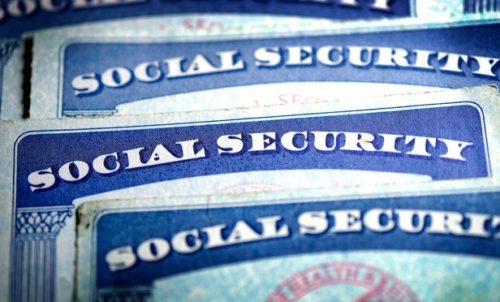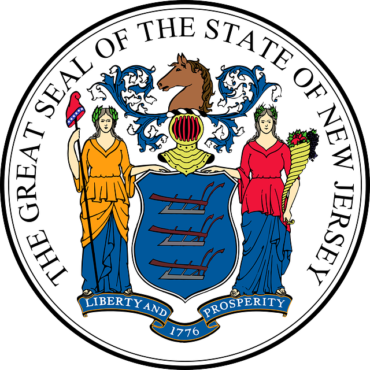Due to changes in the the tax code a few years ago, most taxpayers can no longer deduct charitable contributions. Making a Qualified Charitable Distribution (QCD) is a great way to make a charitable contribution and still get a tax benefit. A QCD is a direct transfer of funds from your IRA custodian to a qualified charity and counts toward satisfying your annual IRA required minimum distribution (RMD). IRA distributions are generally considered taxable income, but QCDs are excluded. RMDs were waived in 2020, but those over age 72 will be required to take them again in the coming year. Read more about QCDs by clicking the link below:
Read moreYear: 2020
Few budgetary concepts generate as much confusion as the Social Security trust fund. In 2021, working Americans will pay 6.2% of their wages up to $142,800 to the government and employers match that amount. The self-employed have to pay both amounts. This payroll tax is deposited into the Social Security Trust Fund and retiree benefits and administrative expenses are paid out of this fund. The following article is the best I've read explaining whether the federal government really raids the trust fund and whether Social Security will run out of money.
Read moreMortgage rates dropped to a new low for the 13th time this year, allowing a record number of homeowners to refinance, according to Freddie Mac, a government-sponsored agency that backs millions of mortgages. The rate on the 30-year fixed mortgage fell to 2.72% and the rate on the 15-yr fixed mortgage is even lower. Should you refinance now?
Read moreAccording to the latest Bureau of Labor Statistics study, people have an average of 12 jobs over the course of their lives. There is more turnover than usual due to Covid-19. When starting a new job, you may worry about getting along with your boss and co-workers as well as whether you'll find the work fulfilling. You also need to review your new employer's benefits and here are some important things to consider.
Read moreHalloween may be a shell of its usual self this year, but it is still a good time to eradicate the monsters who may be hiding in your company’s closet. Some monsters are much less frightening once they’re brought into the daylight. Keep reading for some advice how to deal with 5 typical ghouls and goblins sucking the revenue out your business.
Read moreThe 2020 Medicare Open Enrollment season runs from October 15 through December 7. Don't be lazy and just let your existing options renew. You may be able to reduce costs, improve your coverage, or both by making some changes.
Read moreClients are often misguided as to their rights and obligations in a divorce and, because of this, their expectations are often unrealistic. Often, clients will tell me what they believe the law to be; only for me to have to tell them otherwise. Below are 6 of the the most common misperceptions that I hear.
Read moreWhen you were getting married, you did not plan on getting divorced. You wanted the relationship to last, but now you are worried that it won’t. Before you begin the divorce process, you could seek marital counseling, both as individuals and as a couple. If you ultimately decide to seek a divorce, the following financial planning tips can help you achieve a reasonable financial settlement to establish a strong foundation for your new life:
Read moreBack in the spring there was considerable interest in viral and antibody testing among employers developing worksite return protocols. But survey results show that testing as a requirement for return to work has been largely set aside. Mercer, a leading human resources consulting firm, said that only 5% of respondents to a July survey required (or planned to require) employees to provide a negative COVID-19 test result before returning to the worksite, and just 2% required or planned to require a positive test for antibodies. Beyond the basics of asking employees about COVID-19 exposure or symptoms,facilitating physical distancing and hand hygiene, and requiring (or encouraging) mask-wearing, contact tracing has emerged as a leading strategy in efforts to keep employees safe at the worksite. Well over half of employers in Mercer’s current survey say they now conduct contact tracing.
Read moreWithout schools or caregivers to rely on, some employees, particularly women, are making the difficult choice to leave the workforce or cut back their hours, despite the long-term damage to their finances and careers. Mercer, a leading human resources consulting firm, surveyed over 750 employers and said the great majority are allowing parents to change their schedules or offering other forms of flexibility to help them cope during the pandemic. So far only 8% have added or expanded direct childcare assistance, such as onsite, nearsite, or back-up childcare, but we expect to see this number increase. Childcare support is becoming a new essential employer benefit.
Read moreBefore the COVID-19 changed the way we do business, working remotely was something many people imagined as sort of a future-work utopia. Having your home to yourself during the day while your partner or kids are out, sending work emails with your dog cuddled up beside you, having access to your specific brand of coffee — it all sounded like a dream. That’s probably not how working from home looks for you right now. In reality, you’re likely juggling how to make space in your home for calls and video meetings, keep yourself productive, keep your children occupied and oh yeah — stay sane in the midst of it all. Read on if you need help improving efficiency while working from home.
Read moreMutual funds are nearly 100 hundred years old! The “pooled funds” investment model enabled investors to purchase a diversified portfolio of financial instruments that would steer money, depending on the fund’s investment goals, into different asset classes. The idea started slowly but eventually took hold, as fund accounts grew and more and more mutual funds popped up on the investment landscape. The first – and oldest – mutual fund in the U.S. was the MFS Massachusetts Investors Trust, which rolled out in 1924 under the management of MFS Investments, out of Boston, Mass. Click the link for additional historical detail and to see a list of 8 other original mutual funds. Note that all still exist today (except for one, but it was merged into another fund, so it's legacy still lives on too).
Read moreDue to COVID-19, many businesses are closed and employees have been laid off. According to recent studies, one in four Americans do not have enough money saved to cover more than two months of expenses and one out of every four people doesn’t have any savings. This means that going without work for a few weeks to a month will leave people in dire situations. Keep reading if you are in financial hardship and think bankruptcy might be right for you.
Read moreIf you pay for education expenses, you may be able to save money on your taxes by claiming the American opportunity credit or lifetime learning credit, or opting for the the tuition and fees deduction. Keep reading to see if you qualify.
Read moreUnlike the federal government, New Jersey is barred from operating at a deficit by its state constitution. That effectively forces spending cuts in the event of unanticipated financial downturns. As such, NJ has frozen $920 million in state government spending for the rest of the fiscal year as it grapples with a “significant” slowdown in tax collections in response to COVID-19. The "freeze" doesn't mean the payments won't be made - just that that they will be delayed. The biggest item on the list is $142 million for property tax credits paid through the homestead benefit program.
Read moreThe coronavirus stimulus package, known as the CARES Act, waives required minimum distributions (RMDs) from retirement savings accounts for 2020. Since RMDs are taxable, the waiver gives retirees who can afford to skip their 2020 distribution some amount of tax relief. Also, if you qualify, distributions prior to age 59 1/2 of up to $100,000 are not subject to the 10% excise tax in 2020, and distributions of up to $100,000 this year can be reported as income over three years and/or repaid.
Read moreIf you are uninsured, or are losing your insurance due to recent unemployment, you do have options to regain health coverage. Depending on your financial situation, only certain options may be affordable. But any level of coverage will help protect you and your wallet down the line. Options include securing coverage through your spouse's insurance plan, COBRA, the Affordable Care Act marketplace, or Medicaid.
Read moreThe IRS is giving Americans an extra three months to file their taxes for year 2019 as the country largely remains on lockdown due to the coronavirus pandemic. Instead of an April 15th due date, tax returns are now due on July 15th. Taxpayers that owe money can also defer federal tax payments, interest free and penalty free until July 15. Additionally, the deadline for making contributions to IRAs and Health Savings Accounts was similarly extended to July 15th. Note that you can still request an automatic extension to file your tax return to October 15th, but the extension does NOT change the deadline to pay any taxes or make IRA or HSA contributions.
Read moreCOVID-19 continues to wreak havoc on the world’s peoples and economies. In the United States, as businesses shut down or pare back, millions of workers have already been laid off, leaving many to wonder how they’ll pay their bills. The federal government just enacted the biggest economic rescue package in modern American history. The package grants households relief in the form of stimulus checks sent directly to most Americans, expanded unemployment benefits, paid sick leave, temporary student debt relief and more. Click the following link for a great guide to the federal stimulus package:
Read moreA suite of new programs designed to support NJ businesses and workers facing economic hardship due to the outbreak of the novel coronavirus COVID-19 was recently approved by the New Jersey Economic Development Authority (NJEDA) Board. The package of initiatives includes a grant program for small businesses, a zero-interest loan program for mid-size companies, support for private-sector lenders and Community Development Financial Institutions (CDFIs), funding for entrepreneurs, and a variety of resources providing technical support and marketplace information. Keep reading for more detail on these new programs:
Read moreA record 3.3 million Americans just applied for unemployment benefits according to the US Labor Department. as restaurants, hotels, barber shops, gyms and other non-essential business shut down in a nationwide effort to slow the spread of the deadly coronavirus. If you are a NJ resident in need of guidance with unemployment benefits or how to handle your bills, such as mortgage payments, utilities, or other debts, keep reading...
Read moreHSAs are the only type of account that offer a “triple tax benefit” for federal taxes - pre-tax savings, tax-deferred growth, and tax-free withdrawals. The account is intended to be used for current out-of-pocket health expenses, but investing and waiting to use the account later is even better!
Read moreIt is that time of year to consider making an IRA Contribution. You have until April 15, 2020 to make a contribution for 2019. You can also make your 2020 contribution at the same time.
Read moreAt this point, you’ve probably heard about the SECURE Act, which took effect on January 1, 2020. It makes several changes to retirement savings law. In my opinion, the most important change is the elimination of the "Stretch IRA" for most non-spouse beneficiaries. Here are the six key changes you need to know about:
Read more























